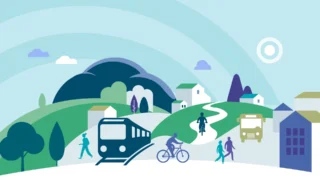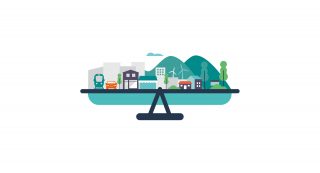The WDC made a submission to the Department of Finance Consultation on the options for the use of revenues raised from increases in carbon tax.
A detailed consultation paper was prepared by the Tax Division of the Department of Finance which provided background information on carbon tax revenues, proposed changes in the rate of the tax and possible implication of these increases for users. They also outlined a number of options for the use of revenues from the tax.
The ESRI has also done a number of studies on distributional effects of carbon tax and revenue recycling options and noted that the carbon tax disproportionately affects lower income households and rural households. I hope to look at these studies in more detail in a future post.
As regular readers of the blog know, the Western Region (the area under the WDC remit) is a largely rural region which takes in some of the most remote parts of the state. Using the CSO definition 64.7% in of the population live outside of towns of 1,500 or more. Using the definition in Ireland 2040 the National Planning Framework 80% of people in Western Region live outside of towns of 10,000. Thus WDC work has a particular focus on the needs of, and opportunities for, more rural and peripheral areas. The five most rural counties in Ireland are in the Western Region (Leitrim, Galway county, Roscommon, Donegal and Mayo, and the Western Region also has a higher share of the population living in smaller towns.
In this submission we therefore concentrated on issues for rural areas and our region. Climate action for rural dwellers is not often discussed in policy and there is no significant body of work (internationally or nationally) on climate change and emission issues for rural areas in developed countries and yet there are important differences in energy use patterns and emissions in rural areas. Hence, the main focus of the submission was on key climate matters for rural dwellers including energy efficiency; home heating; transport; and stimulating rural enterprise.
The WDC emphasised that a portion of the revenues from increases in carbon tax focus should focus on addressing issues for rural areas, and on actions to ensure that rural areas are in a position to benefit from a move to a low carbon economy. There are many opportunities to do so and targeted programmes would enable rural dwellers to make a fair contribution to national goals for renewable energy and to actions to mitigate climate change.
You can view the submission here.
Helen McHenry




